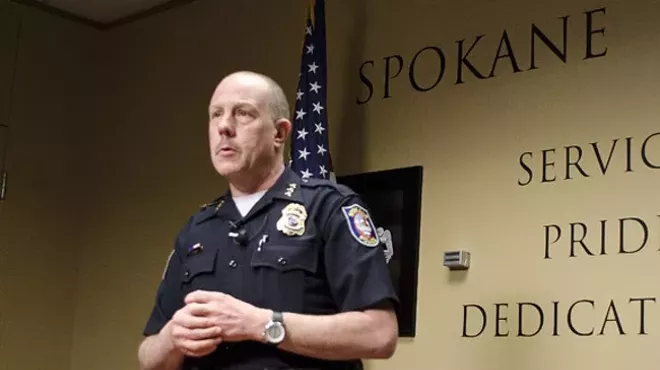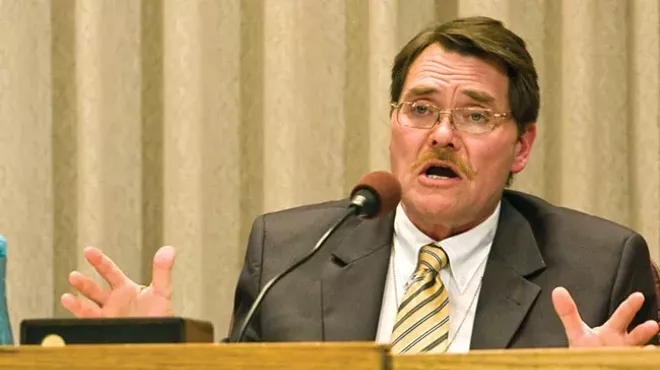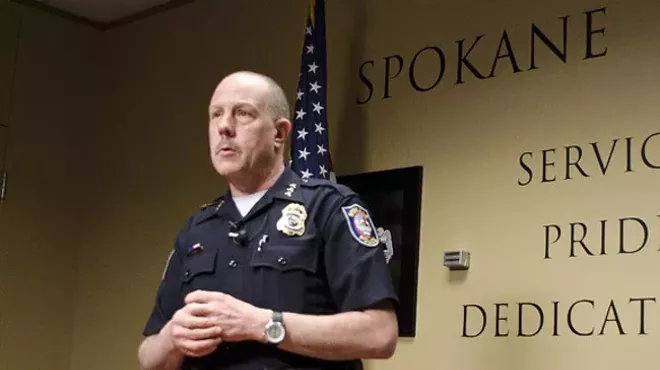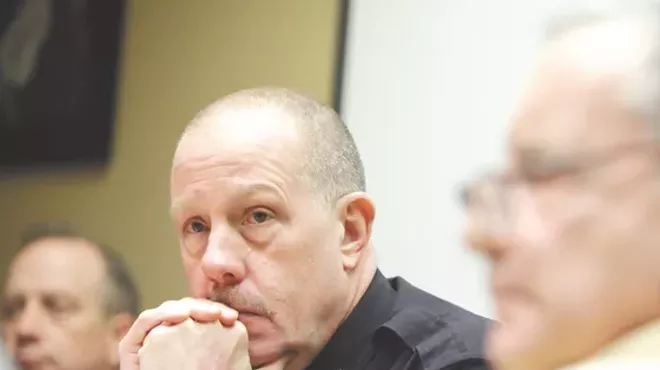Friday, January 29, 2016
The question of Mayor David Condon's honesty hinges on these 28 seconds
The question facing the Spokane Ethics Commission about whether Mayor David Condon was unethically dishonest at a Sept. 22 press conference may come down to 28 seconds of audio:
Inlander Reporter Mitch Ryals: Were there any sexual harassment complaints lodged against Frank?As the ethics commission considered an amended ethics complaint from the National Organization of Women on Wednesday, those 28 seconds made up a central piece.
Mayor David Condon: No.
KHQ reporter Patrick Erickson: There have been rumors of an inappropriate relationship between the Chief and Ms. Dugaw. Has that been brought up at all? Was that any part of this as well?
Condon: The, the critical thing is the management style. Uh, the, the uh, the issue, um, with the uh... that you speak of, that there has been no official filings of anything.
The big question: Was Condon being honest?
But in seeking the answer, specific word choices in the reporters' questions — such as "complaints" and "Dugaw" — have come under intense scrutiny.
In writing up NOW's ethics complaint, the Center for Justice's Rick Eichstaedt turned to Merriam-Webster's online dictionary for the simple definition of "complaint:"
1. a statement that you are unhappy or not satisfied with somethingBy that definition, Eichstaedt argued, it's clear that Cotton had, in fact, complained about sexual harassment, so Condon was dishonest.
2. the act of saying or writing that you are unhappy or dissatisfied with something
3. something to be unhappy about : something that people complain about
Condon's attorney countered, citing the 1983 Webster's 9th New Collegiate Dictionary definition of "complaint:"
1. Expression of grief, pain or dissatisfaction“NOW’s gratuitous and self-congratulatory argument that the public must not be deceived should be rejected out of hand," King wrote, noting that, under the third definition of complaint, there had been no sexual harassment complaint lodged against Straub.
2. a) Something that is the cause or subject of protest or outcry;
b) a bodily ailment or disease
3. a formal allegation against a party
To deal with Condon's response to Erickson's question, King zoomed in on the Erickson's choice to use "Ms. Dugaw" instead of "Ms. Cotton."
Dugaw is Cotton's maiden name. But King argued that there was no evidence that Condon knew "Dugaw" was Cotton, or that he even was answering Erickson's question.
On the other hand, Condon didn't say he didn't know who Dugaw was. He didn't ask who or what Erickson was referring to. Instead, Condon spoke in generalities.
"If the mayor was confused, he would say, who the heck are you talking about it?" says Eichstaedt. "He said this was about management, there are no official filings. There's no evidence he didn’t know who that person was... It’s my understanding that a lot of people did know that name, that she’s been around in the community. "
The debate also returned to the question of what "dishonesty" means for the city's code of ethics. Is it an expansive definition of "the truth, the whole truth, and nothing but the truth?" Or is it going for a standard of not-technically-untrue?
Eichstaedt pointed to the Merriam-Webster's dictionary for a layman's definition:
“Dishonesty” is defined by Merriam-Webster’s Dictionary as “lack of honesty: the quality of being untruthful or deceitful.” “Deceitful” is defined as “making or trying to make someone believe something that isn’t true.”King didn't buy it.
“We do not accept NOW’s definition of dishonesty,” he said, arguing that using the definition would put mean “any public employee or public official when asked a question, under any circumstances of any time, is required to expand to provide any a bit or scintilla of information that may be within the arguable scope of the question.”
He did not, however, provide an alternative definition.
Tags: David Condon , City of Spokane , Frank Straub; Ethics Commission; Rick Eichstaedt , News , scandal at city hall , Image , Video































